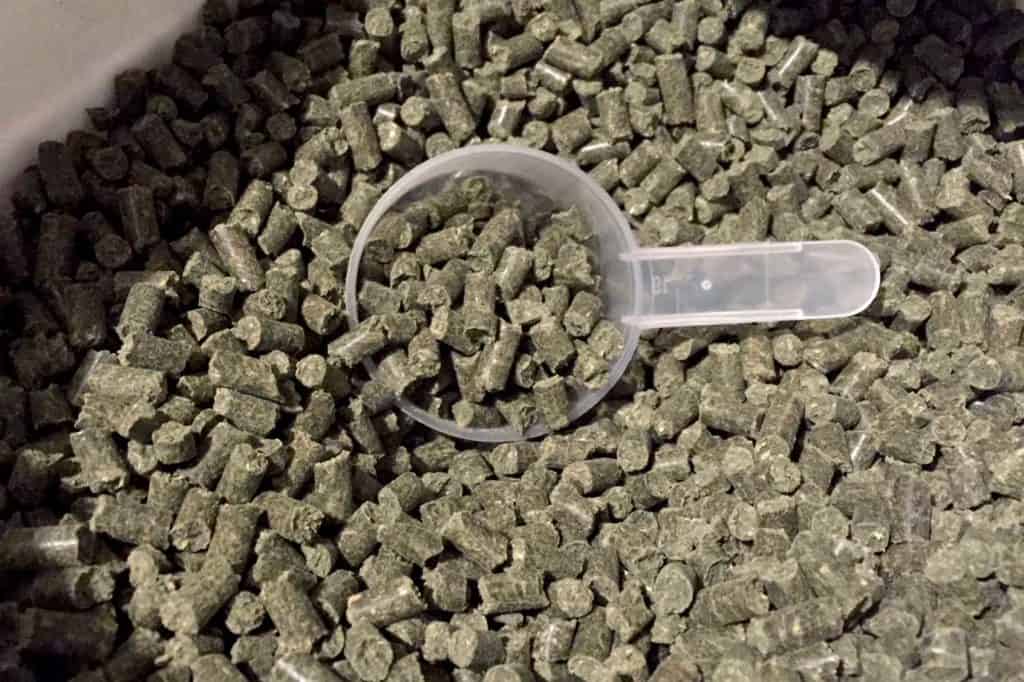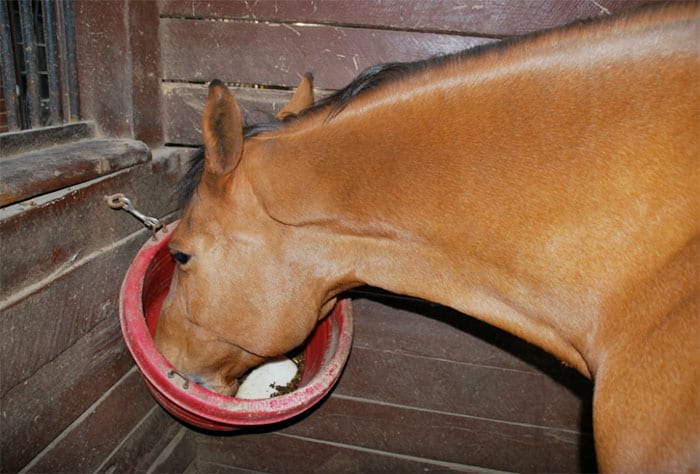
Researchers Test Model for Assessing Equine Joint Supplement Efficacy
The trial might help answer questions about nutraceuticals’ effects on horse joint health.

The trial might help answer questions about nutraceuticals’ effects on horse joint health.

Is your horse getting the nutrition he needs to reach his athletic potential? Are you looking to build his topline or increase his stamina? Equine nutritionists answer these questions and more. Sponsored by ProElite.

Targeted nutrition can sustain performance horses’ gut and cellular health during the stress of travel and competition.

Fasting a horse overnight prior to giving an omeprazole dose to treat ulcers improves treatment outcomes, especially for glandular ulcers, a researcher found.

Does your horse have gastric ulcers? Research suggests the odds are yes. Learn more about EGUS with educational content throughout August.

Researchers confirm that misconceptions about what constitutes obesity exist among horse show judges.

Learn about four trendy nutritional supplements in the equine industry, the rationale for their administration, and scientific data supporting their use.

Electrolytes play an important role in hydration and cellular function in horses. Learn more about electrolytes, when you might need to supplement them, and what research has shown about how they affect performance horses.

Some calming supplements for horses contain valerian, an herb thought to interact with brain chemicals. Here’s what science says—or doesn’t say—about valerian for calming horses.

When feeding flaxseed to your horses, knowing the difference between whole seeds, ground seeds, and meal is important. Here’s why.

A French study is the first to connect the gut microbiota with the mitochondria in horses, or any other species.

Dietary deficiency of vitamin E can lead to three specific neurologic and muscular diseases. Find out if your horse is getting enough.

Researchers investigated if two common joint supplement ingredients contribute to worsening gastric ulcer scores in horses.

Does your horse need a dollop, dab, pinch, or peck? Learn to formulate a diet based on your horse’s age, body condition, and health status.

Showing, training, traveling, or even lifestyle changes can put your horse under stress that risks his health. The right nutritional choices can support his immune system, GI tract, and overall well-being. Learn how.

Omega-3 fatty acids offer horses health benefits, but are fish sources okay for horses to eat?
Stay on top of the most recent Horse Health news with
"*" indicates required fields